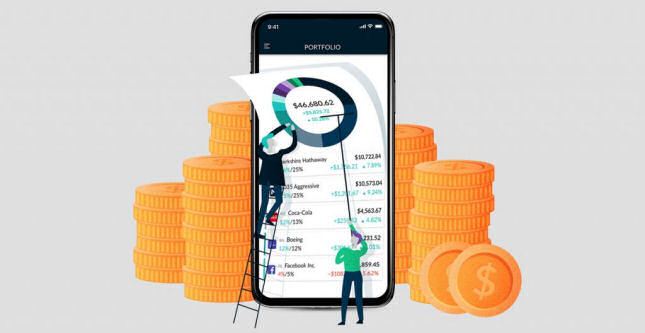The definition of wealth
What is wealth? What is net worth?

When people discuss the meaning of wealth they usually are referring to financial security by building your money and assets. Your wealth can also include your savings, property, and investments. The types of investments might include your real estate, bonds, CDs, mutual funds, annuities, and stocks.
What does it mean to be wealthy?
Being wealthy means that you are affluent and have achieved financial freedom. Being affluent is measured by your net worth. Your net worth is how much you possess in your savings, real estate investments, other investments, and cash minus any liabilities that you have. One way you can measure it is by using a net worth calculator.
Your savings are the funds that are remaining after your expenses are taken out. Your investments are purchases that you make with money that have the potential to turn a profit or to produce money for you.
Your liabilities are the amounts of money that you owe to other parties, which are normally in the form of cash. Liabilities are one way to measure your financial health. By paying them off, you can be on your way to achieving financial freedom.
Wealth in the U.S.
According to a study that was conducted by 2019 Modern Wealth Survey, 59% of respondents reported that they live paycheck to paycheck. Forty-four percent of the respondents reported that they carry credit card debt, and just 38% of the respondents have an emergency fund.
Forty percent of the high net worth individuals in the world live in North America. Almost 84% of the wealthiest people made their own wealth.
What is wealth?
Being wealthy involves having an abundance of assets instead of liabilities. What does it mean to be wealthy? It means that you have the ability to generate money for yourself. There are several forms, including the following:
- Income-producing investment portfolios
- Intellectual property rights
- Multiple income streams

How much do I need?
To calculate the amount needed, start with determining your personal net worth. You can do this by adding up the value of your assets and your liabilities, then subtracting your total liabilities from the total assets to determine your net worth with the following formula:
Net worth = Assets – Debt
Your net assets include everything that you own that has a monetary value. To assess the net asset value of your large items such as your home, take your home’s resale value minus the mortgages and selling costs. For automobiles, take the resale value minus the outstanding loan balance. You should also include any real estate properties, boats, and the value of any businesses that you own.
Your checking and savings accounts, cash, CDs, brokerage accounts or retirement accounts are liquid. Your liquid assets also include any personal items of value that are worth $500 or more, including jewelry, coin collections, musical instruments, art, valuable collections, and more.
Your debt includes the total liabilities or obligations that you have to pay. Your outstanding liabilities are the balances that you owe on secured debts, such as the balance on your mortgage or car loans. Your personal liabilities also include the balances on your credit cards, student loans, and other unsecured debts.
High net worth individuals generally possess around $1 million in liquid assets. To determine your net worth, you can use a net worth calculator to help with the calculation.
Income vs. wealth
Your earnings are simply the money that you earn which is not the same as wealth. The active portion includes the physical efforts that you put forth to earn money, while the passive portion originates from minimal to no physical effort. Passive sources might include the following:
- Dividends
- Fixed annuities
- Real estate investment earnings
- Interest
- Investments in private businesses
The IRS has strict regulations that govern many different aspects of earning and building wealth. This means that it may be advisable for you to seek a professional to determine your deductions and your taxable earnings that must be reported on your tax return.
Steps to becoming rich
There are multiple steps that you can take towards becoming rich. You can start by creating a financial plan and setting your goals. A financial plan is a written analysis of your finances, including your income, a valuation of your assets, your liabilities, and your investments to determine both your current financial state and your potential future financial state.
A financial plan helps to assess your current net worth and to decide the steps for building wealth and gaining financial freedom. It can also help with wealth management as you build more money.
The next step to take is to identify and develop multiple sources of income. Your sources should include both active and passive sources. You should simultaneously engage in saving and investing.
Having emergency funds built up is crucial. An emergency fund is money that you set aside in the event that something that is unplanned or catastrophic occurs. An emergency fund can help you to make it through times when you are unable to work for an extended period of time.
You will want to build your portfolio, which is a collection of your investments. Your portfolio may include securities such as the following:
- Stocks
- Bonds
- Mutual funds
- Money market funds
- Exchange-traded funds
After you build your portfolio, you will need to make certain that it is diversified. Diversification occurs when you include different kinds of asset classes in a portfolio. The diversification of your portfolio can help by serving as a hedge against risk.
Diversification involves a strategy of selecting a number of different types of asset classes to help to reduce the overall risk of your portfolio. You should aim to have an asset variety that is composed of cash, fixed income, equities, and investments.
Your asset allocation is also important. It involves apportioning the capital assets in your investment portfolio in a way that balances the risks and rewards.
You also need to reduce your liabilities. Prioritize repaying your liabilities and consider consolidating or refinancing them at a lower rate of interest to help you to repay them faster.
When you invest, you should save more money. Saving more when you invest can help you to maximize the interest that you earn while minimizing the withdrawal penalties that you might incur. Think about setting up automatic withdrawals from your bank account to be deposited in your investment account so that you can automatically save more money and invest it.
Automate the contributions that you make to your retirement account. You should be making contributions to your retirement account at regularly scheduled intervals. You can link your bank account to your IRA account and set up regularly scheduled transfers so that you don’t have to think about making contributions.
If your employer matches your 401(k) contributions up to a certain percentage, make sure that you take full advantage of that. Contribute at least as much as what your employer will match to build more savings.
High net worth individuals also understand the importance of taking full advantage of their retirement plans. In addition to your 401(k) plan through your job, contribute to a traditional IRA or a Roth IRA. Set a goal of maximizing your contributions to these accounts each year and fund your retirement accounts before you fund college savings plans. Maximizing your retirement accounts should include taking advantage of catch-up contributions once you reach age 50.
Compare the incentives that are offered by different brokerages as well as the costs. While some brokerages charge high transaction fees and commissions, others charge low fees or no fees. Some brokerages also charge high fees to manage your account in addition to high transaction costs.

Wealth management involves tax planning when you invest. With good tax planning strategies, you can minimize the amount of taxes that you might have to pay.
It also involves employing strategies to reduce your taxable income. High net worth individuals take advantage of multiple tax deduction strategies. Some of the strategies that high net worth individuals use include contributing pre-tax dollars to a 401(k) plan or an IRA and being aware of the wash sale rule.
The wash sale rule applies when you trade or sell securities at a loss. If you trade or sell at a loss and purchase securities that are substantially identical to the securities that you traded or sold at a loss within 30 days before or after the sale or trade, the IRS will disallow you from claiming a deduction on your tax return for the loss.
Good wealth management and the process of becoming affluent includes the need to understand your risk tolerance. You should figure out your risk tolerance, which is your ability and willingness to withstand volatility in the stock market. If you are young, you will likely have a higher risk tolerance than if you are older and nearing your retirement age.
Aggressive investors have a high-risk tolerance level and choose high-volatility securities for the chance to earn maximum returns. Moderate investors take a more balanced approach to mix both high and low-risk investments. The focus is always good diversification. Conservative investors have a low-risk tolerance level and typically choose low-risk investments, including bonds, money market funds, and others that help them to preserve their capital.
Having a goal of building wealth will require you to make adjustments to your portfolio. You will need to rebalance it and allocate or readjust the percentages that you have assigned to different securities to ensure that your portfolio remains optimized. Using robo-advisors can help you on your path to building wealth and becoming affluent. These are computer programs that are programmed to advise investors, according to their financial needs and goals.
Achieving financial freedom requires you to pay attention to your financial health. When you have a good FICO credit score, you can enjoy lower rates of interest on purchases that you make and on mortgages and car loans. You should always strive to stay informed on the most up-to-date financial news. Read investment blogs, investment websites, and investment books.
The meaning of wealth and good wealth management also require you to stay on track for the long-term. If you do not remain on track, spend money needlessly and fail to save and invest, you will not become wealthy. View the market as a long-term investment and ignore short-term market fluctuations. Commit to staying in for the long-term and avoid get-rich-quick schemes.
Building wealth may be a long process, but it is attainable if you follow these steps. Investing through the M1 Finance platform can help you to place yourself on the right financial path.

Building wealth with M1 Finance
M1 Finance is trusted by many smart investors across the U.S. With free automated investing, M1 Finance empowers you so you can invest with ease. M1 simplifies the process by blending key investing principles together with powerful technology, which allows you to help build wealth.
With M1, you can enjoy simple, secure, and free investing for do-it-yourself investors. You can invest without being charged any commissions or management fees. When you open an account with M1 Finance today, you can create a custom portfolio by selecting your own securities and choosing the allocations that you want to assign to each. We also have more than 80 pre-built portfolios that are available. These have been created by experts to meet different risk tolerance abilities, time horizons and financial goals.
M1 Finance empowers you to manage your money and potentially earn more. The platform helps to save you time when you invest. It automatically rebalances your portfolio and reinvests your dividends so that it stays on track to reach your financial goals at all times so that you can build wealth without having to think about it. M1’s award winning investment tools enable your money to grow automatically while minimizing the tax burden.
